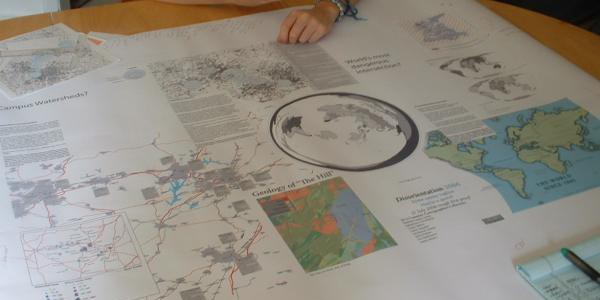Liz recently got back from a visit to Bologna…
My first night in Bologna I gave a talk at Bartleby – an occupied space at the university and spoke about university struggles in the US and the edu-factory project. The talk was part of a week of events leading up to the strike on Friday that included other talks, meetings, music and parties. Some themes that came up in the discussion during my talk were:
– the relationship between autonomous movements and major trade unions
– the effects of student debt (universities in Italy are now beginning to charge tuition fees, forcing students to go into debt in order to study – like the US!)
– the effects of the Bologna Process and other efforts at standardization of university curriculum

The next day, I participated in the autonomous student & precarious workers’ march during the general strike, as part of the Yes We Cash campaign for a guaranteed minimum income.

Back in NC, our discussions focused on the importance and the pragmatics of having a space – in Bologna, as many other places around the world, taking over a space, not only as a temporary tactic, but to create a more permanent presence, an alternative space. These spaces are used for talks and discussions like the one I participated in, and also more generally as meeting places, spaces to enact the kind of university we want. Could we do this? It seems much harder to permanently occupy spaces within our university campus. For one, there is much less unused space to occupy and secondly, the administration is much less willing to negotiate with students for the control of a space. Yet this shouldn’t serve as discouragement, but rather open up new lines of inquiry and action. In Italy and other places, it is the strong base of student power that forces the administration to negotiate with students – building this power from below must be one of our starting points. Some questions that might merit further research – how are spaces used and controlled on our campus? What would we like that to look like? How might we begin to go about occupying university spaces differently? What about creating alternative spaces of knowledge production outside of the university?













 At dawn this morning, in the framework of an investigation ordered by Torino’s Public Prosecutor office, Italian police made dozens of unwarranted house searches against students and activists. 21 of them are under arrest: 15 in prison, 6 under house-arrest.
At dawn this morning, in the framework of an investigation ordered by Torino’s Public Prosecutor office, Italian police made dozens of unwarranted house searches against students and activists. 21 of them are under arrest: 15 in prison, 6 under house-arrest.